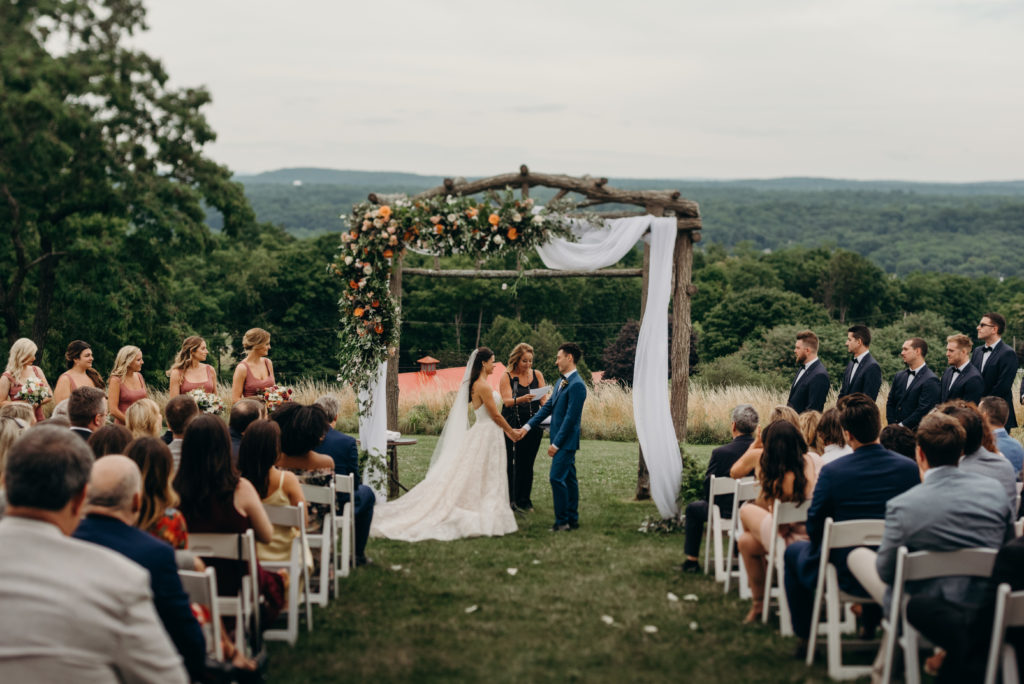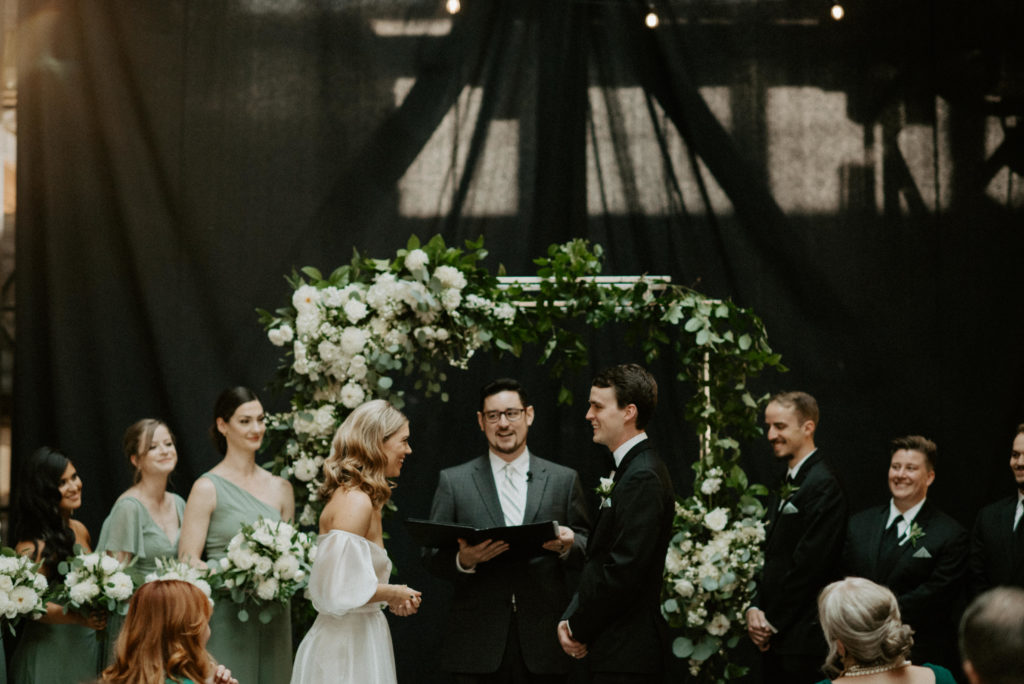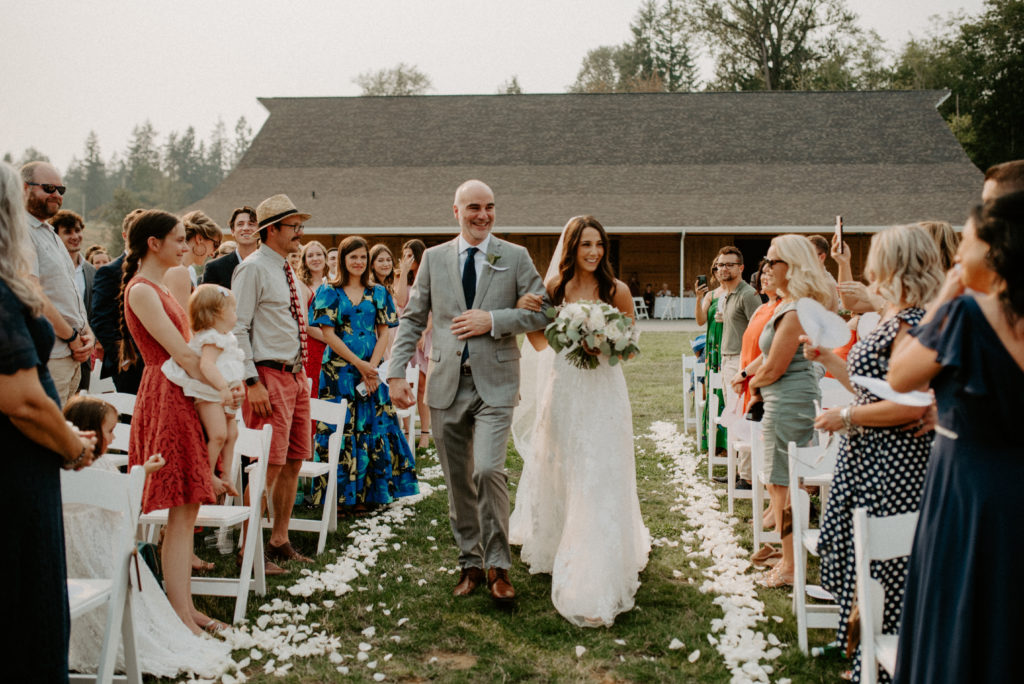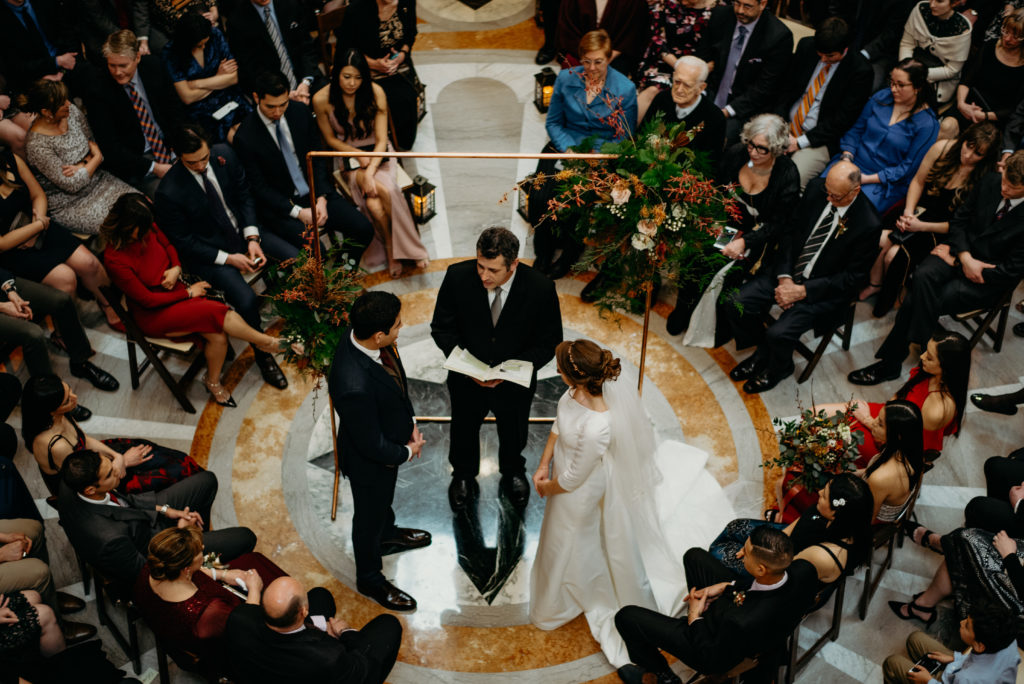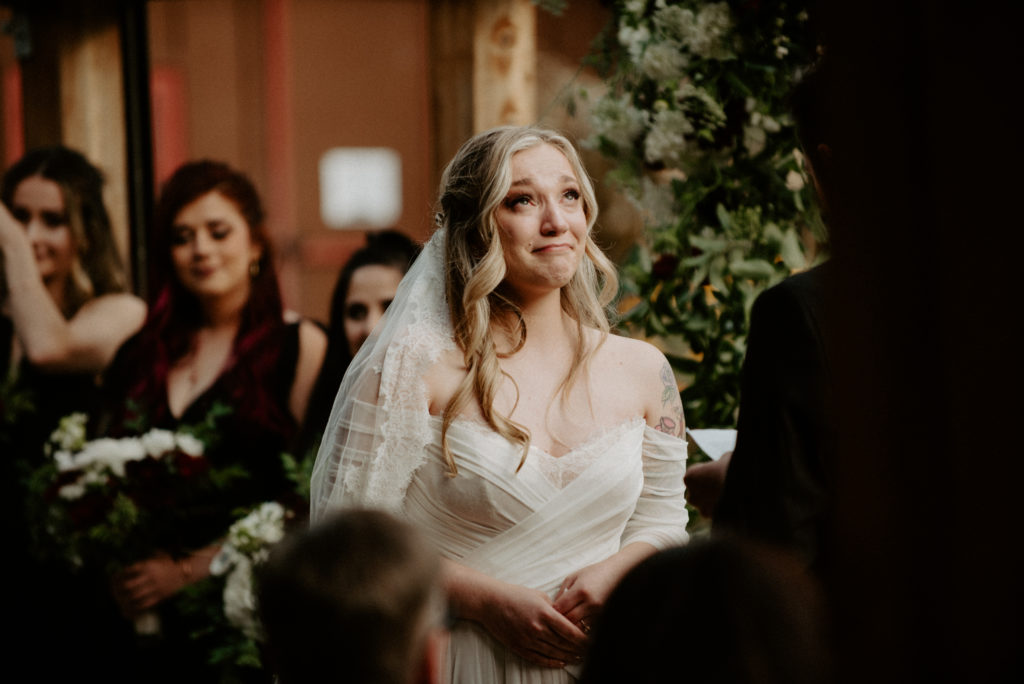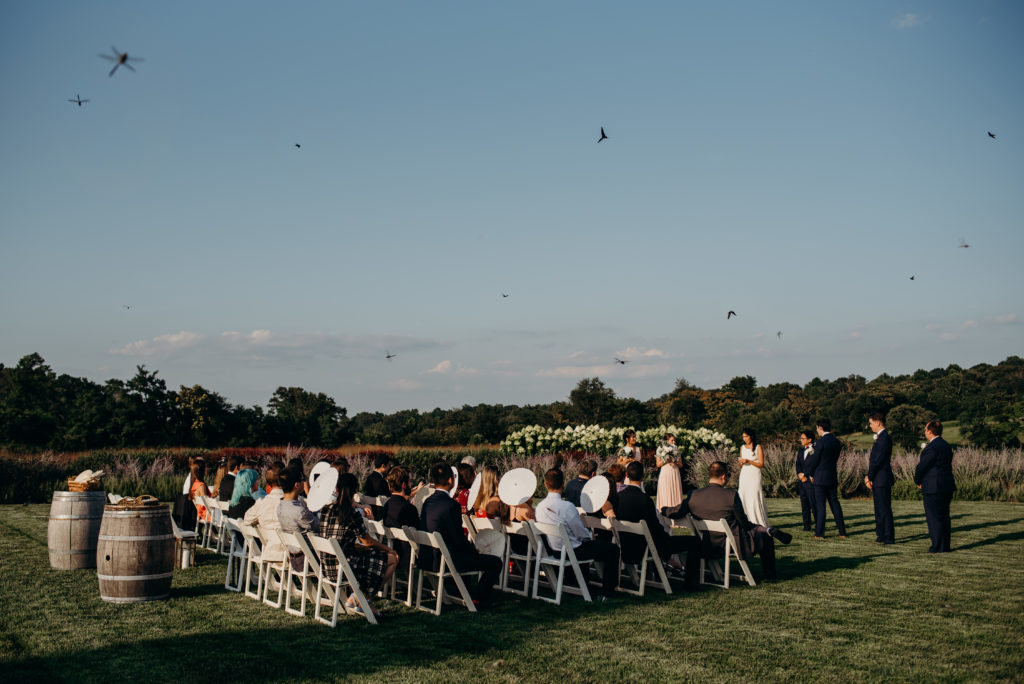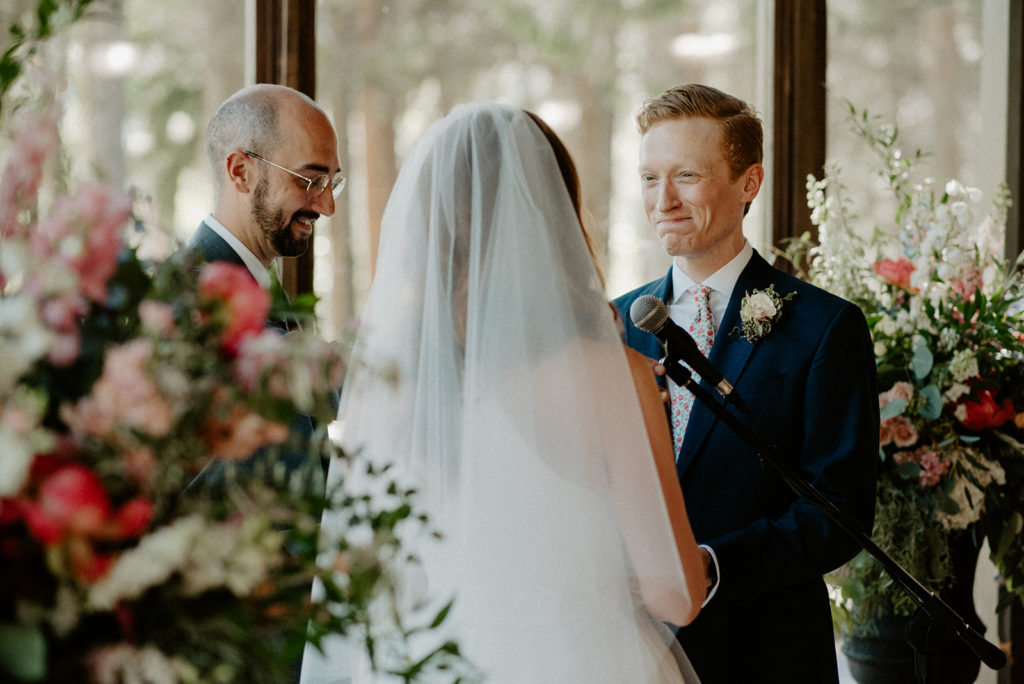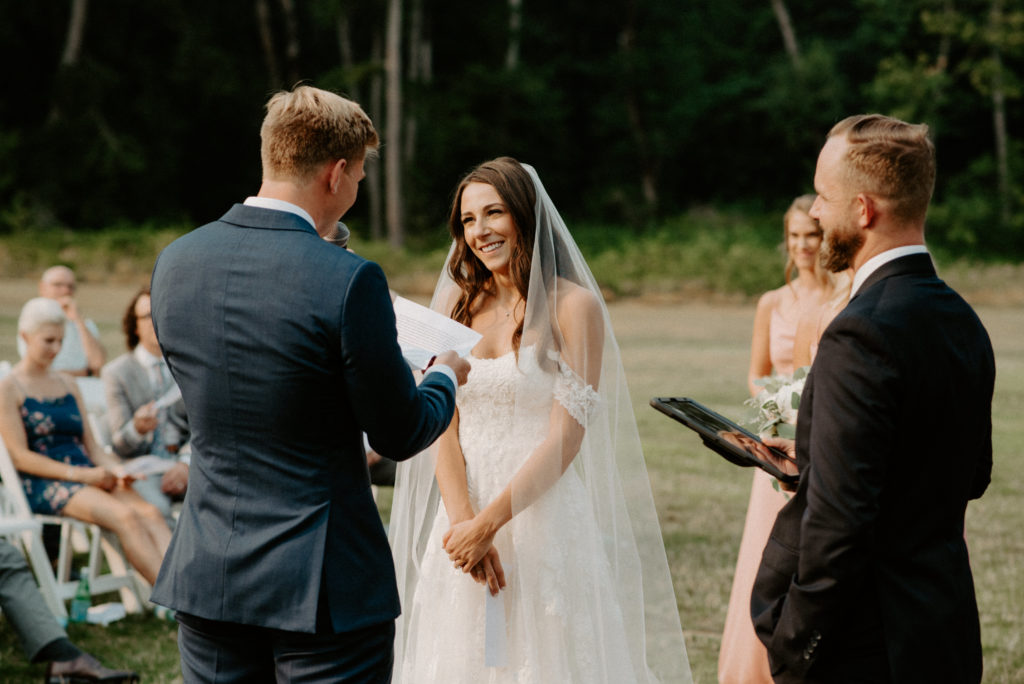How to Have Good Light for Your Ceremony / Wedding Planning Tips
January 18, 2022
How to Have Good Light for Your Wedding Ceremony and Get the Best Photos
Learning how to light your wedding ceremony doesn’t have to be challenging! Below I laid out 6 tips on how to plan the best light for your wedding ceremony photos.
Timing is crucial!
Avoid planning your outdoor ceremony between 12 and 2 pm. This is when the sun is highest in the sky. When sunlight comes from above it is very harsh and causes unflattering shadows on your face.
Be aware of where the sun will be during your ceremony time!
Plan to have the sun completely behind or in front of you, not to the side of you. If the sun is to the side one of you will have your face cast in shadow. To figure out where the sun will be, you can visit your ceremony space around the time of day you’ll be getting married! If you’re visiting during a different time a year, calculate how many hours behind sunset your ceremony time is and deduct that same amount of time from sunset on the day you will be there.
Natural light is always the best and most natural!
When choosing an indoor ceremony space try to pick something with a lot of windows and natural light. Avoid places with very orange overhead lighting. The more natural light that is available, the better your skin tones and overall color grading will be!
Have an outdoor ceremony!
Indoor wedding ceremonies are usually in very dimly lit spaces. Dim lit spaces leads to having dark and grainy photos. If you’re not a fan of dark photos or grain, I’d suggest planning an outdoor ceremony.
Add professional lighting!
If you choose a place that has a dimly lit ceremony space it’s best to hire a professional lighting company to drape lights for you.
Photography is light!
Photography depends on light! Photographers need quality light to create quality photos.
Last thoughts!
There are so many misconceptions about what makes for good lighting with photography. For example, people often think that bright sunny days mean perfectly lit photos! While bright sunny days may be beautiful, they can make it difficult to get evenly lit photos.
Another misconception is that any light is good light. All lights are not made equal. Lights all have their own color temperature. Most indoor lights tend to be a bit warmer than natural light and this orange color subsequently leads to orange color casts on skin and clothes. To avoid having conflicting light color temperatures plan for lights that are consistent with each other.
If you wind up having more questions about ceremony lighting please leave them below in a comment or reach out to me by email at he***@li*************.com!
